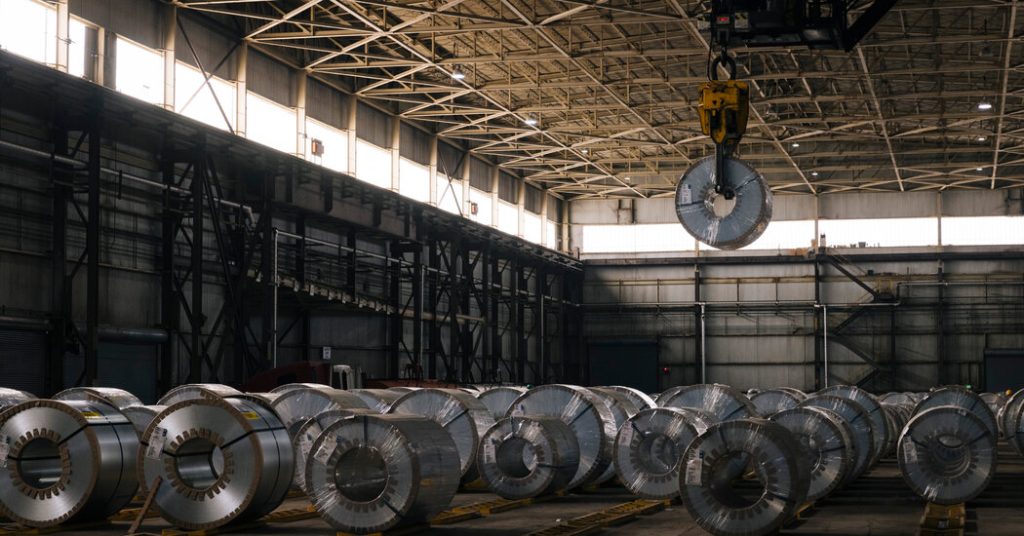The Biden administration plans to spend up to $6 billion on new technologies to reduce carbon dioxide emissions from heavy industries such as steel, cement, chemicals, and aluminum. These industries are major contributors to global warming but have been difficult to clean up. The Energy Department will partially fund 33 projects in 20 states to test methods for cutting emissions from factories and industrial plants. This initiative is described as the largest industrial decarbonization investment in American history.
One of the funded projects involves Constellium, an aluminum producer, receiving up to $75 million to build an aluminum casting plant in West Virginia that can run on cleaner hydrogen fuels instead of natural gas. Another project involves Kraft Heinz receiving up to $170.9 million to install electric boilers and heat pumps at 10 facilities across the country to generate heat without burning fossil fuels. Cleveland-Cliffs, a steel manufacturer, would get up to $500 million to replace a coal-consuming blast furnace in Ohio with two furnaces using electricity and explore steel production using hydrogen.
While the individual projects may not have a significant impact on U.S. emissions, the goal is to demonstrate innovative technologies that can scale up rapidly and establish a new standard for clean manufacturing globally. Heavy industries account for a considerable portion of the nation’s planet-warming pollution, with factories often burning coal or natural gas for heat. While there are technologies to reduce emissions, many are costly and in early stages of development, making it challenging to implement them on a large scale.
The Biden administration has been funding new technologies in heavy industries as a strategy to drive down costs and encourage widespread adoption. Rather than imposing strict regulations on sectors like steel and cement, the focus has been on developing cleaner processes through investments. Additional federal agencies are also supporting the use of low-carbon industrial materials by purchasing items such as steel, cement, asphalt, and glass produced using cleaner methods.
The funding for the projects announced by the Energy Department comes from the Industrial Demonstrations Program, which was established through bipartisan infrastructure and inflation reduction legislation. The 33 selected projects will need to undergo further negotiations with the agency before final funding is approved. These initiatives include companies like Sublime Systems, exploring cleaner cement manufacturing using electricity-powered processes, and projects utilizing thermal energy storage, which can capture intermittent renewable energy to provide consistent heat for industrial operations.
There is optimism surrounding the potential of innovative technologies to address industrial emissions, with various projects demonstrating the diversity of solutions available for decarbonization. The funding provided by the Energy Department is essential for early-stage projects that may be too expensive or risky for traditional financing. The goal is to accelerate the development and deployment of these technologies globally to combat climate change. Overall, the projects represent a significant step towards cleaner manufacturing practices and reducing greenhouse gas emissions in heavy industries.


